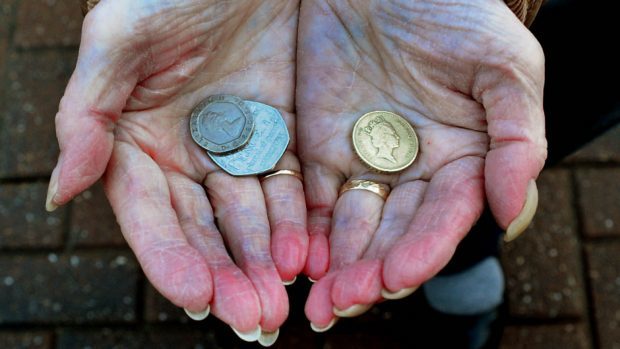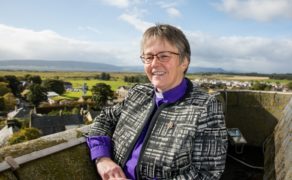There seems to be a day or a week dedicated to almost everything you can imagine. Did you know that September 9 is Buy Your Priest (or Minister) A Beer Day? I looked up my birthday and apparently it’s Poinsettia Day or Gingerbread House Day. Who would have thought?
I looked up our wedding anniversary and it is far more exciting! April 4 is lots of things from World Rat Day (hey-ho) to Pillow Fight Day, to Vitamin C Day and Carrot Day, to (wait for it) Walk Around Things Day. I kid you not.
Today, October 5, is part of Hispanic Heritage Month and it is also World Teachers’ Day. I hope you sent a wee card with the kids this morning.
There are, of course, many more poignant days and weeks that aim to bring comfort or to raise awareness for causes such as Marie Curie or Cancer Research, Baby Loss Week, Alzheimer’s and Dementia Care, Christian Aid Week or the one that begins today: Challenge Poverty Week.
We know there are parts of Scotland where too many people struggle to make ends meet. We imagine these to be in the bigger cities. The truth is however, that a whopping one in five who live in our land live daily with the pressures of poverty. I have to be honest and say I find that statistic shocking. But then I know that even in the town where I live, which is deemed to be reasonably affluent, there are children who don’t get three meals a day and whose parents struggle to buy family necessities, and there are also older people living hand to mouth.
And this current pandemic has only served to make matters worse. Covid-19 has widened the gap between rich and poor and heightened the inequalities there are in income, housing and health.
In these last few months those who have been unable to make ends meet have seen their cost of living rise and no extra money coming in to cover that rise, which means they are spiralling further into debt. There is evidence of people having to borrow money to pay for basics such as food and it is estimated that due to Covid-19 the UK will accrue additional debt of around £5 billion.
This is at a time when unemployment is set to rise dramatically while employment opportunities decrease. If that is the case, then how are people going to have any chance of getting out of debt?
The current pandemic has disproportionately affected the poorest among us most – and even more so black families who are three times more likely to bear Covid debt.
Those behind Challenge Poverty Week, including the Church of Scotland, recognise that now is the time to do something to address these inequalities.
Now is the time to break the downward spiral and to give families and individuals a fresh start.
Around the year 2000 the churches and others called for debt relief for poor countries, in order to support international development. The idea is based on a biblical principal known as a Jubilee.
Jubilee establishes the practice of pausing periodically (usually every 50 years) to reshape and refresh a community, to make sure no one is trapped in poverty or bondage because of their debts.
I would suggest that if we are serious about “building back better” in the aftermath of this pandemic and if we are serious too about contributing to a just and green future where no one is left behind, then this notion of Jubilee is one we don’t just need to explore, we need to adopt it. Imagine if we did decide to offer extra help to enable families already struggling, to make a fresh start. What difference might that make to individuals and to those families and communities?
Imagine the increase in nutrition and health and educational attainment. Imagine the greater sense of worth that would ensue and better mental health.
In fact, helping families to start again without the burden of debt, could see less need for the services offered by so many of those other good causes weeks I mentioned at the start of this column, since poverty directly increases people’s chances of cancer, baby loss and so many other life reducing conditions. When people are not poor, their health and wellbeing improves.
Why is the Church so exercised about poverty? Because Jesus was. And because Jesus asked his followers to follow his example and care for the poorest too. It’s when we look out to those around us who tend to be overlooked, that we are reminded who we are. Each one of us is made in the image of God and loved by him, as if we were the only one to love. And that is how we ought to treat each other. As much loved. And precious.
Let’s try harder.
The Very Rev Susan Brown is minister of Dornoch Cathedral and the former moderator of the General Assembly of the Church of Scotland

